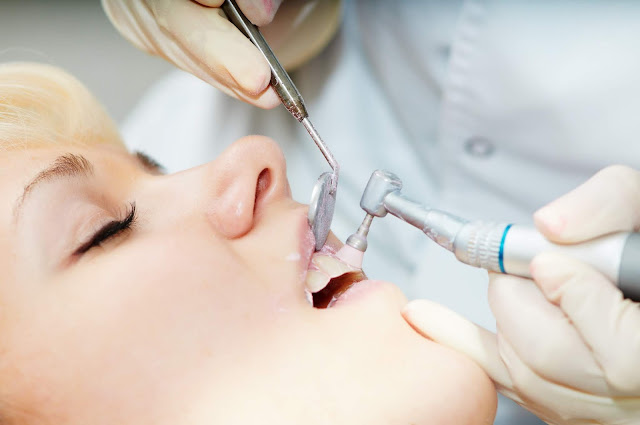Dental Malpractice is a term used to denote any deficiency in dental treatment and is especially applicable in situations of wrong treatment. While dental malpractice refers to wrong treatment or improperly done treatment which cannot be undone, there are many overlapping areas concerning regular treatments that can have some complications or treatments which there is an issue but it can be corrected. Having this approach can result in reduced litigation for dental malpractice and more trust between the doctor and the patient. The following are some of the issues that can happen as complications in regular dental procedures.
Extraction:
Post extraction delayed healing or dry socket can happen in a few cases. A curved root or badly broken tooth during extraction can break and result in surgical removal. However, removing a wrong tooth or jaw fracture will fall into the malpractice category. In most cases, causing an oro-antral fistula or inferior alveolar nerve damage will definitely be treatment negligence if informed consent has not been taken. Causing damage to other oral, dental and facial tissues while performing procedures will definitely be a very serious issue
Root canal treatment:
Deficient root canal filling, the fractured instrument in canal and tooth fracture or perforation during instrumentation could be malpractice issues if not informed to the patient. Instruments like file aspiration and oral tissue damage from corrosive irrigants could be more dangerous and definitely be a case of dental negligence.
Crowns, bridges, veneers:
While short margins, improper shade, and shape of the work or improper occlusion are definitely a problem, they can be corrected easily. However, improper abutment selection and improper tooth preparation can result in malpractice issues as they are irreversible.
Dental implants:
Improper case selection can result in implants not placed in the right position. This can result in implant failures which cause bad blood with patients. Damage to nerves and perforation of sinus or nasal lining during implant placement with resultant complications would be a malpractice issue.
Fillings:
In case the fillings are deep, then it should be informed to the patient that it may need a root canal. Improper cavity preparation and accidental exposure of pulp during cavity preparation are concern areas.
Other than the above damage to the tongue, cheek, etc or any other orofacial tissues during dental work will be a case of negligence. Proper communication and awareness of dental malpractice and negligence between dentists and patients can avoid litigation and malpractice cases. Dentists must also ensure that adequate steps are taken in their clinics to ensure safe and proper patient care
Extraction:
Post extraction delayed healing or dry socket can happen in a few cases. A curved root or badly broken tooth during extraction can break and result in surgical removal. However, removing a wrong tooth or jaw fracture will fall into the malpractice category. In most cases, causing an oro-antral fistula or inferior alveolar nerve damage will definitely be treatment negligence if informed consent has not been taken. Causing damage to other oral, dental and facial tissues while performing procedures will definitely be a very serious issue
 |
| Best Dental clinic in Chennai |
Root canal treatment:
Deficient root canal filling, the fractured instrument in canal and tooth fracture or perforation during instrumentation could be malpractice issues if not informed to the patient. Instruments like file aspiration and oral tissue damage from corrosive irrigants could be more dangerous and definitely be a case of dental negligence.
Crowns, bridges, veneers:
While short margins, improper shade, and shape of the work or improper occlusion are definitely a problem, they can be corrected easily. However, improper abutment selection and improper tooth preparation can result in malpractice issues as they are irreversible.
Dental implants:
Improper case selection can result in implants not placed in the right position. This can result in implant failures which cause bad blood with patients. Damage to nerves and perforation of sinus or nasal lining during implant placement with resultant complications would be a malpractice issue.
Fillings:
In case the fillings are deep, then it should be informed to the patient that it may need a root canal. Improper cavity preparation and accidental exposure of pulp during cavity preparation are concern areas.
Other than the above damage to the tongue, cheek, etc or any other orofacial tissues during dental work will be a case of negligence. Proper communication and awareness of dental malpractice and negligence between dentists and patients can avoid litigation and malpractice cases. Dentists must also ensure that adequate steps are taken in their clinics to ensure safe and proper patient care
